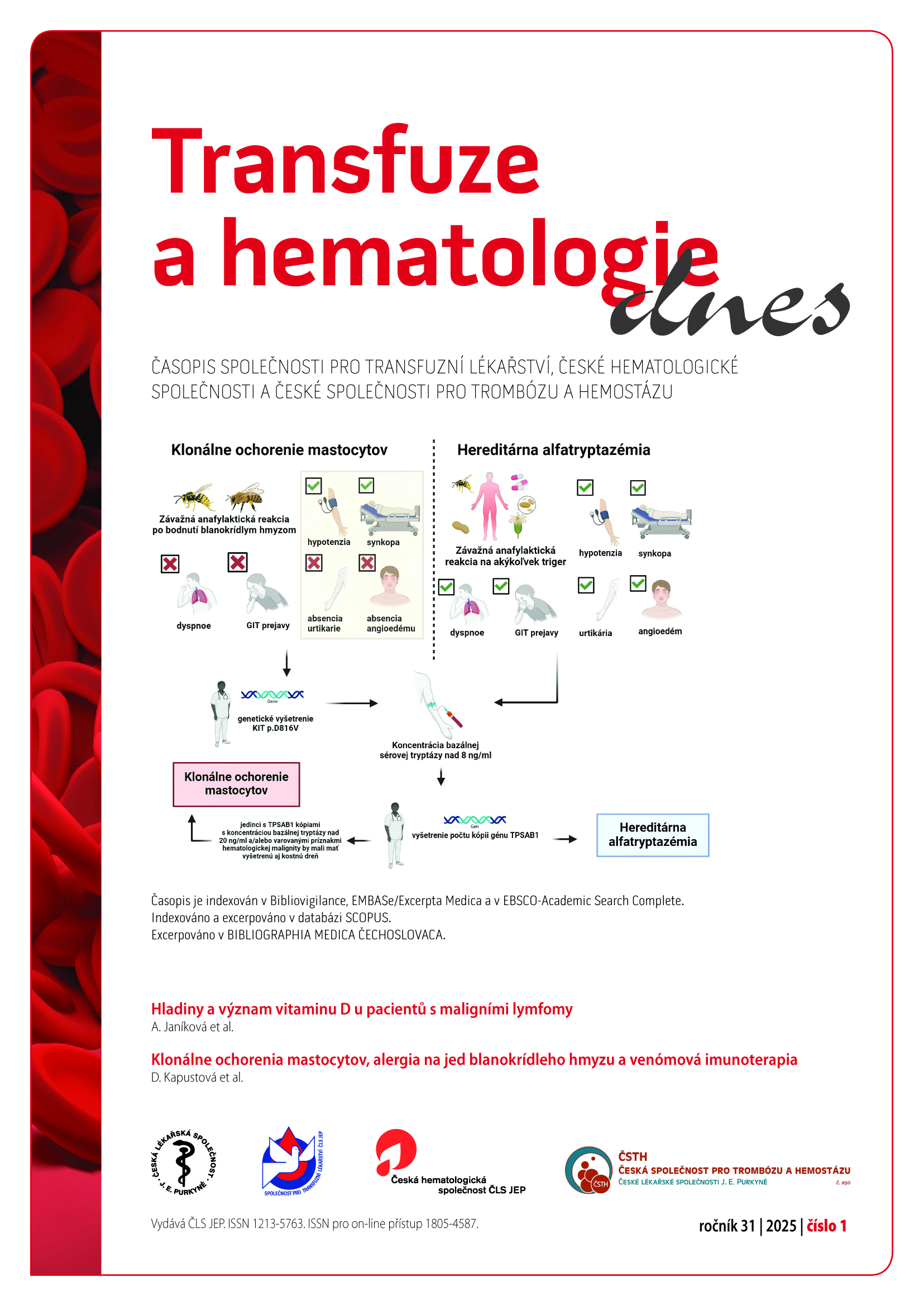VITAMIN D AND ITS IMPORTANCE IN MALIGNANT LYMPHOMAS
Keywords:
lymphomas, vitamin D, prognosis, supplementation, VDRAbstract
Vitamin D is a group of steroid hormones, most of which is produced in the body with the help of UV radiation from the sun, but it is also contained in various foods such as marine fish oils. In the body, it is further metabolized to its active form in the liver and kidneys. It binds in the blood with the help of the VDBP (vitamin D binding protein) and acts on the VDR receptor (=Vitamin D Receptor) directly in the cell nucleus. Its concentration in blood is influenced by geographical location, season (length of sunshine), skin pigmentation, amount of fat and muscle tissue. Vitamin D best-known function is the regulation of calcium-phosphate metabolism, but it is involved in many other functions such as regulation of the cell cycle, induction of apoptosis and also plays a role in a regulation of the immune system. Briefly, its action leads rather to immune tolerance. Deficiency is becoming more and more common in the population, with almost 50% of the European population suffering from it today. Deficiency is associated with higher aggressiveness of tumors, including Non-Hodgkin lymphomas. Contrary, patients with higher levels of vitamin D have been shown to have better overall survival and time to progression. The question therefore arises as to whether vitamin D supplementation could have a more favorable effect on the prognosis.


